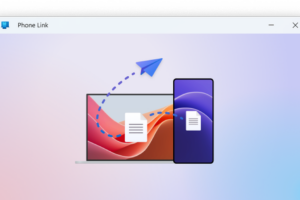First Abu Dhabi Bank (FAB) has successfully completed a pilot program using programmable payments with JPM Coin. This innovative trial, conducted through Onyx by J.P. Morgan, marks a significant step forward in the evolution of digital banking and automated financial transactions.
The Future of Finance Takes Shape in Abu Dhabi
As I stand in the gleaming lobby of First Abu Dhabi Bank’s headquarters, the excitement is palpable. Employees hurry past, their conversations buzzing with terms like “blockchain” and “programmable payments.” It’s clear that something transformative has just occurred.
“This is more than just a successful pilot,” explains Sarah Al-Mansoori, a senior financial analyst at FAB. It’s a glimpse into the future of banking – a future where payments can be as intelligent and responsive as the businesses they serve.
At its core, the concept of programmable payments is deceptively simple. It allows for payments to be triggered automatically based on specific conditions or events. However, the implications of this technology are far-reaching.
Dr. Ahmed Khalifa, a fintech expert I spoke with outside the bank, puts it into perspective: “Imagine a world where your business can set up payments that execute themselves based on real-time data. That’s not just convenient – it’s revolutionary.”
Key features of the pilot program include:
1. Time-based account funding
2. Threshold balance-based account funding
3. Automated execution of payment obligations
The pilot conducted by FAB and J.P. Morgan wasn’t just a theoretical exercise. It involved real transactions and demonstrated tangible benefits.
We successfully completed both time-based and threshold balance-based account funding into deposit accounts,” explains Mohammed Al-Hashimi, Head of Global Transaction Banking at FAB. “This allowed us to execute payment obligations with unprecedented efficiency and precision.”
As we walk through the bank’s state-of-the-art transaction center, Al-Hashimi points out the screens displaying real-time data flows. “What you’re seeing here is the future of treasury management,” he says with pride.
The success of this pilot opens up a world of possibilities for FAB and J.P. Morgan’s mutual clients. Corporate treasurers, in particular, stand to benefit significantly from this innovation.
Potential applications include:
– Automated and conditional invoice payments
– Dynamic margin funding
– Just-in-time settlement solutions
“For treasurers, this means transitioning from traditional cash forecasting to a more dynamic, responsive approach to funding,” explains Laila Rahman, a corporate treasurer I interviewed at a nearby café. “It’s like giving your cash management a brain of its own.”
The Role of JPM Coin and Onyx
Central to this innovation is JPM Coin, J.P. Morgan’s blockchain-based payment system, and Onyx, the bank’s dedicated blockchain unit.
Naveen Mallela, co-head of Onyx by J.P. Morgan, shared his enthusiasm in a press release: “We are delighted to work with FAB to extend our programmable payment offerings to multibank use cases. We believe that digital programmable ledgers will form the foundations for the finternet in the coming years.”
This statement underscores the potential for this technology to reshape not just individual transactions, but the very infrastructure of global finance.
The implications of this pilot extend far beyond the borders of the UAE. As I speak with various financial experts throughout the day, a common theme emerges: this technology has the potential to go global, and fast.
In fact, it’s already happening. In November 2023, Onyx by J.P. Morgan launched programmable payments through JPM Coin, with multinational conglomerate Siemens AG as one of its first adopters.
Peter Rathgeb, group treasurer of Siemens AG, highlighted the benefits: “Programmable payments provide the ability to leverage 24/7 blockchain-based bank accounts combined with programmability, which will enhance automation, optimize working capital utilization, and support data-driven digital business models.
As the sun sets over Abu Dhabi’s skyline, casting a golden glow on the city’s financial district, I’m reminded of the global nature of this innovation. Reports from September 11, 2024, indicate that JPMorgan Chase aims to use its blockchain services to boost its corporate banking market share in Switzerland.
This expansion, building on successes in Germany with companies like Siemens, demonstrates the growing appetite for blockchain-based financial solutions across diverse markets.
Despite the excitement, experts caution that the road ahead isn’t without challenges. Regulatory concerns, cybersecurity issues, and the need for widespread adoption are all factors that will need to be addressed.
“It’s a promising start,” notes Dr. Fatima Al-Suwaidi, a professor of financial technology at UAE University. “But we’re still in the early stages. The real test will be how this technology scales and adapts to different regulatory environments.”
As I wrap up my reporting from First Abu Dhabi Bank, the significance of today’s announcement is clear. The successful pilot of programmable payments using JPM Coin represents more than just a technological achievement – it’s a paradigm shift in how we think about money and transactions.
By enabling dynamic, automated, and condition-based payments, FAB and J.P. Morgan are laying the groundwork for a more efficient, responsive, and intelligent financial system. As this technology continues to evolve and spread, it has the potential to reshape treasury management, optimize working capital, and drive innovation across the global financial landscape.
The journey from traditional banking to the “finternet” envisioned by Onyx is well underway, and First Abu Dhabi Bank’s successful pilot marks a significant milestone on this path. As the financial world watches closely, one thing is certain: the future of banking is becoming more programmable, more automated, and more exciting by the day.
















Add Comment